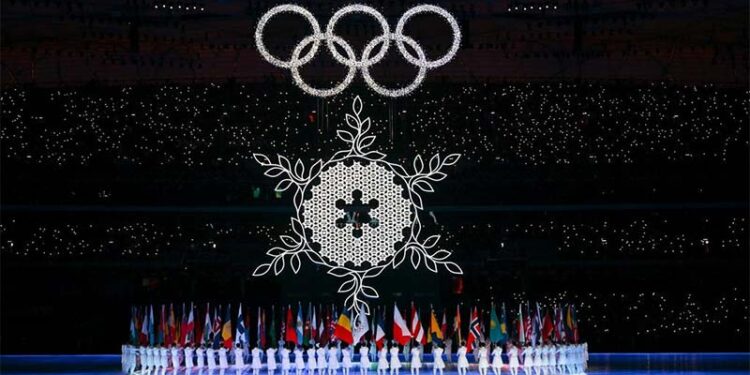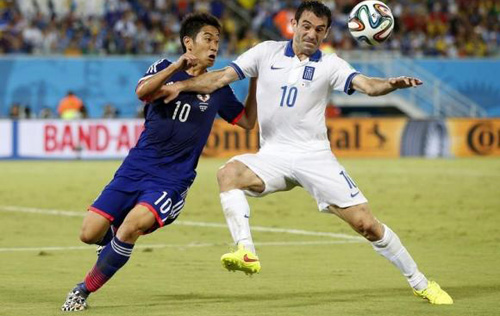BEIJING: Enchanted fireworks illuminated the sky above Beijing on the night of the closing ceremony of Winter Olympics 2022 attended by President Xi of China and Thomas Bach, President of the International Olympic Committee at the National Stadium of China apart from other high dignitaries.
The Olympic flame extinguished in the stadium as the Chinese delegates of athletes marched through the stadium, marking the ceremony’s end. As curtains went down on Olympics, a new legacy of China as the hosting nation has emerged. This memory is set to embark China on a boundless winter sports journey, emulate sustainable development, and capitalize its profile as a technologically innovative, resilient, and leading state in creating a shared future for humanity.
The Beijing Olympics 2022 ended by leaving an ever-lasting legacy in China that engages 300 million people in winter sports. Although the curtain has fallen on the Olympic Games, the energy is still ripe amongst the Chinese people and hard to fade away any time soon. Another element worth mentioning here is the health safety measures as the organizing committee had taken stringent measures against the Covid-19 pandemic, according to an article published by China Economic Net (CEN) on Wednesday.
In addition, the Olympic baton has been passed on to Italy for the upcoming Milan Olympics 2026. This will be the second time for Italy to host the grand winter sports after 20 years since 2006. The events will be held in the Italian cities of Milan, Giuseppe Sala, Cortina d’Ampezzo, and Gianpietro Ghedina.
China hosted the games safely and splendidly. More than 10,000 people, including athletes, sporting staff, journalists, and other officials, arrived in Beijing for the Olympics, presenting a daunting challenge to pandemic prevention, but with utmost conviction, China could make a difference by hosting a global event of this scale. The closed-loop system helped China monitor and test people and the positive toll drastically dropped from 26 cases on February 2nd to zero by February 13th. This has raised the bar to a higher level for other nations to follow.
Beijing stood out as the only city in the world to host two Olympics. The Winter Olympics 2022 excels in terms of sustainability, health protocols, renewable energy, and the application of robotic machines. The epic display of fusion between technology and tradition remained the hallmark of the Olympics.
The President of IOC lauded China for hosting sustainable, healthy, and safe games by terming it ‘exceptional’. Chinese people upheld the Olympic spirit in its true essence, erected magnificent venues, and exhibited outstanding hospitality deeply rooted in the culture and tradition.
The Beijing Olympics gave away 109 gold medals, exceeding the tally from all previous winter games. Norway is the winner of the games with 37 medals with 16 gold, eight silver, and 13 bronze, followed by Germany with 12 gold medals. China won a historical 15 medals, including nine gold medals.
Apart from the breakthroughs made on competition grounds, China has mobilized a greater scale of people by engaging roughly 300 million people in these sports. This new fashion will increase public interest in sports and provide existing training and sporting venues to ordinary people.
In the end, China deserves applause and appreciation for successfully hosting the Olympics despite pandemic challenges and political constraints fueled by a few countries brewing a cold war mentality and unilateralism. Organizing such a beautiful, well-orchestrated and splendid global event of this scale reflects the essence of the Chinese people and how they are making all the efforts to bring unity amongst groups and contribute towards a better future for humanity in the years to come.













